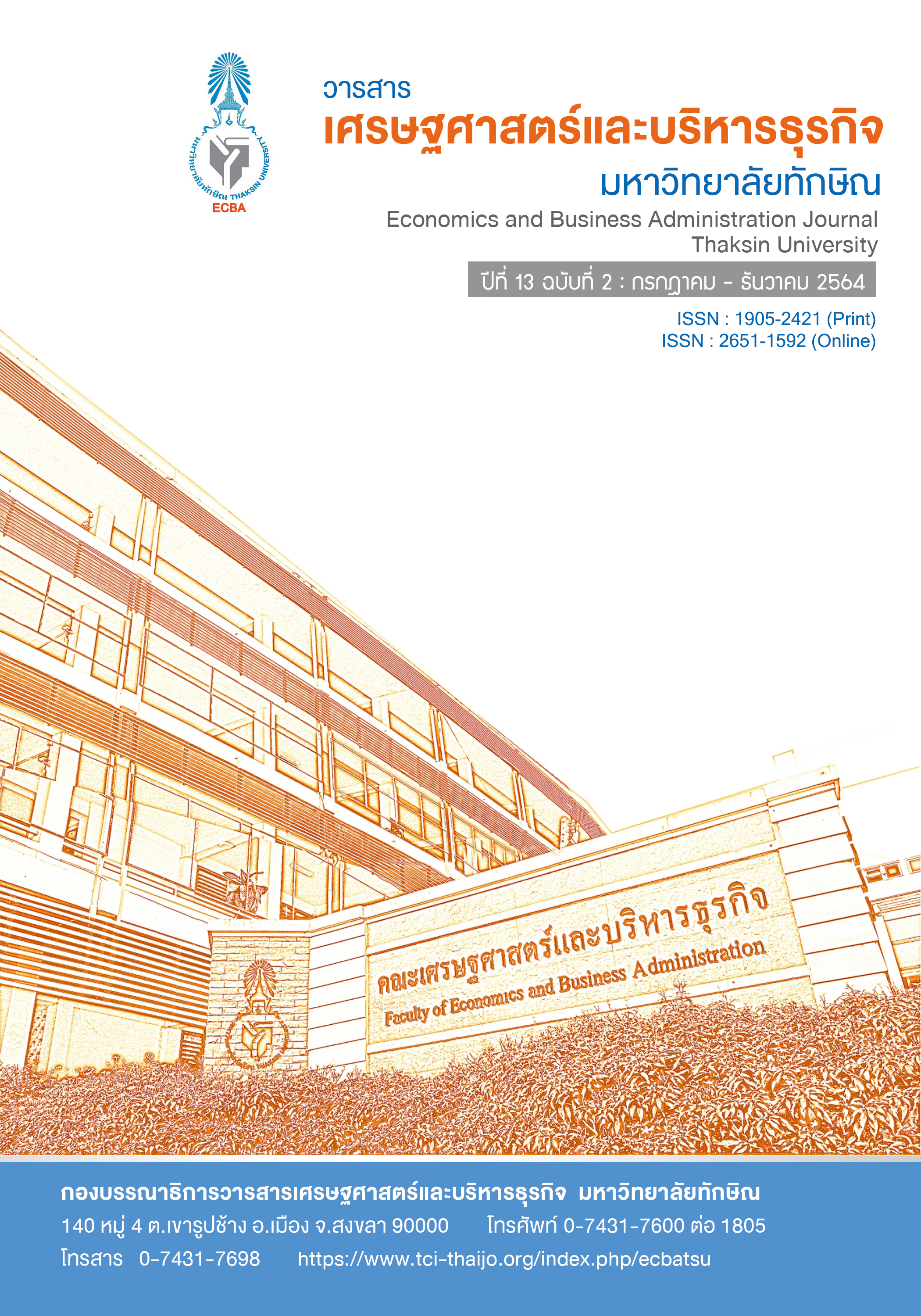The Causal Model of Macro-Environmental Factors, Financial Skills and Personal Finance Management Affecting the Success Factors in Financial Saving of Generation Y for Their Retirement
Keywords:
Causal Relationship, Success factors in financial saving for retirement, Generation YAbstract
This dissertation aims to study the causal model of macro-environmental factors, financial skills and personal financial management affecting to the success factors in financial saving of Generation Y for their retirement. The objectives are (1) to study Generation Y savings success factors for their retirement (2) to study a hypothetical model of the causal relationship of Generation Y financial savings success factors for the retirement. Mixed-Methods was employed in this research using both quantitative and qualitative studies to satisfy our purpose coverage. Sample data of 400 Thai nationalities of Generation-Y who were born during 1980 – 2000 have been collected and analyzed using a numerical statistical method with the Statistical Technical Equation Modeling (SEM) tool. This study can be summarized as follows.
Personal finance management factors are divided into 4 areas: personal income, expenditure, savings, and investment. The financial skills factor is divided into 3 areas: financial literacy, financial behavior, and financial attitude which affecting on the success factors in financial saving of Generation Y for their retirement. As a result, personal financial management factors reveal the direct influence value of 0.38 which has the statistically significant at levels 0.01. To sum up, all of the factors studied had influences on the success of financial saving of Generation Y.
References
Bank of Thailand. (2012). How to do when getting too old before being rich. Retrieved from https://www.bot.or.th/Thai/ResearchAndPublications/articles/Pages/Article_22Feb2021.aspx.
Bunchay, C. (2009). Personal financial management: case study of working people in Bangkok area. Bangkok: Dhurakij Pundit University.
Cavusgil, S. T., Zou, S. & Naidu, G. M. (1993). Product and promotion adaptation in export ventures: An empirical investigation. Journal of International Business Studies, 24(3), 479-506. Franco M. (2003). The American Economist. 47 (1), 3-24.
Department of International Economic Affairs. (2012). Organization for Economic Co-operation and Development. Retrieved December 25, 2019 from https://business.mfa.go.th/th/content/16519.
Department of provincial Administration. (2016). Thai citizen amount. Retrieved from https://stat.bora.dopa.go.th/new_stat/webPage/statByAgeMonth.php.
Jame, S. D. (1959). Underlying Factors in the Post-War Inflation. Myers
Judith, S. R. & Burke J. (2017). How to Construct a Mixed Methods Research Design.
Karunapen, S. (2017). Factors Affecting Saving level and Saving Behavior of Gen Y: Thammasat University.
Kempson, S. C. & Nick, M. (2005). Financial Services Authority. Financial Services Authority Publication date: June 2005.
Kohli, A. K., Jaworski, B. J. & Kumar, A. (1993). MARKOR: A measure of market orientation. Journal of Market Research, 30(4), 467-477.
Lamsam, A., Boonlert, R., Choedpasuporn, S. & Chantarat, S. (2019). Understanding Saving Behavior through 80 Million Deposit Accounts in Thailand. PIER Discussion Paper Forthcoming.
Margo, T., Jason, C. & Hannah, D. (2019). Thailand Has a Developing Economy and a Big First World Problem.
Milton, F. (1957). The Permanent Income Hypothesis. Chapter Author: Milton Friedman.
Philip, S. (2015). Multistage sampling, BMJ (online) 351:h4155, DOI: 10.1136/bmj.h4155.
Porter, M. E. (1994). Global Strategy: Winning in the World-Wide Marketplace. The Portable MBA in Strategy, edited by Liam Fahey and Robert M. Randall. New York: John Wiley & Sons, 1994.
Routledge and Kegan Paul. (1952). “The Problem of Generations,” in Essays on the Sociology of Knowledge (London,): pp. 276–32.
Wong, M., Gardiner, E., Lang, W. & Coulon, L. (2008). Generational differences in personality and motivation: Do they exist and what are the implications for the workplace? Journal of Managerial Psychology, 23(8), 878-890.




